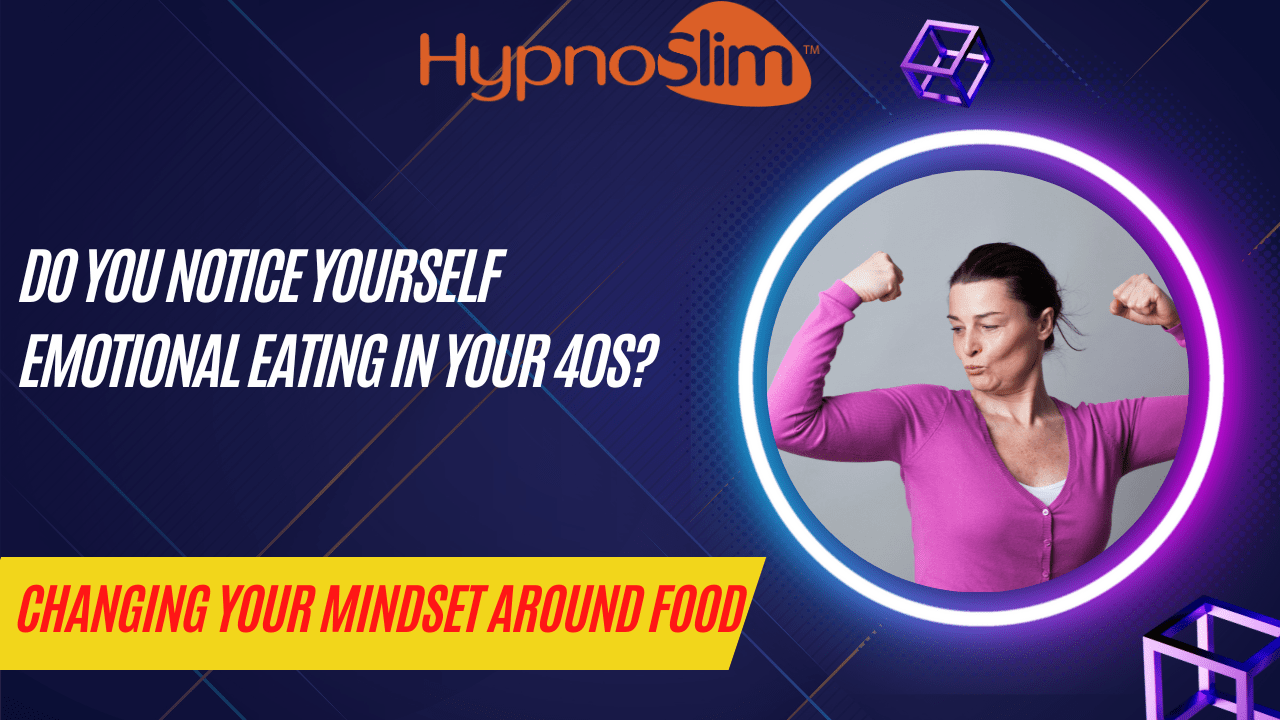No products in the basket.
Weight Loss
Do you notice yourself Emotional Eating in Your 40s?
Emotional eating is a term that refers to using food as a way to cope with emotions, such as stress, anxiety, or boredom. It's a common behaviour that many people engage in from time to time, but it can become problematic when it starts to interfere with your health and well-being. If you're in your 40s and find yourself turning to food to deal with your emotions, you're not alone.
In fact, emotional eating can be more common in middle-aged adults than in younger ones. Here are some reasons why someone in their 40s may be emotional eating and what can be done to cope with it.
Why Emotional Eating May Be More Common in Your 40s:
There are several reasons why emotional eating may be more common in your 40s.
First of all, many people in their 40s are dealing with a lot of stress. They may be juggling the demands of work and family, dealing with financial pressures, and navigating the challenges of ageing parents. All of this stress can lead to emotional eating as a way to cope.
Second, as you age, your metabolism naturally slows down. This means that you may not be burning as many calories as you used to, which can lead to weight gain if you're not careful. This can be discouraging and may lead to emotional eating as a way to cope with negative feelings about your body.
Third, many people in their 40s are dealing with hormonal changes, particularly women who may be going through
peri-menopause or menopause. These hormonal changes can lead to mood swings, irritability, and depression, all of which can trigger emotional eating.
Finally, in our culture, food is often used as a way to celebrate, socialize, and connect with others. This means that we may turn to food as a way to cope with emotions, even when we're not hungry.
How to Cope with Emotional Eating in Your 40s
If you find yourself emotionally eating in your 40s, there are several things you can do to cope with it. Here are some tips:
- Recognise your triggers. Pay attention to when and why you turn to food to cope with your emotions. Are there certain times of day or situations that trigger your emotional eating? Once you identify your triggers, you can start to develop strategies to cope with them.
- Find alternative coping strategies. Instead of turning to food to cope with your emotions, try finding other activities that make you feel good. This could be anything from going for a walk to listening to music to taking a warm bath. The key is to find something that helps you relax and feel better without relying on food.
- Practice mindfulness. Mindfulness is the practice of being present and aware at the moment. When you're eating, try to focus on the experience of eating, rather than using food to distract yourself from your emotions. This can help you develop a healthier relationship with food and reduce your reliance on emotional eating.
- Seek professional help. If you're struggling with emotional eating and find that it's interfering with your health and well-being, consider seeking professional help. A hypnotherapist can help you get to the root cause of your emotional eating and help you develop better habits so that you no longer use food as a crutch.
- Build a support network. Having supportive friends and family members can make a big difference when it comes to coping with emotional eating. Surround yourself with people who understand what you're going through and can offer encouragement and support.
Emotional eating can be a challenging behaviour to cope with, but it's important to remember that you're not alone.

